|
April 28, 2020
Dear brothers and sisters in Christ, When the COVID-19 pandemic began to affect our Province and Diocese in mid-March, we put in place safety measures that were in compliance with the requirements of the Alberta Health Services to protect parishioners, employees and clergy. These have included the temporary suspension of the public celebration of Masses, limiting the number of people present in the church for personal prayer while still making available the celebration of other Sacraments with pastoral directives for the clergy to celebrate them in a safe manner. We have also modified the working arrangements of our employees in order to ensure their safety and well-being while providing necessary service through the parish offices and the Catholic Pastoral Centre. While gathering for Mass as a parish community is not possible at this time, the priests continue to celebrate Mass privately for the intentions of the faithful and explore other various ways to pastorally connect with them. In the meantime, there have been inquiries from parishioners about ways to support the parish and the ministries of the Diocese. This is a sensitive topic to address with so many uncertainties that continue to impact each one of us in unexpected ways. Many parishioners may already be facing financial difficulties as a family, and the first priority must be to take care of the needs of family and loved ones. The parishes and the Diocese continue to rely on the generosity of the faithful to carry on during this time of pandemic and the temporary suspension of Masses. Currently, only 10% of the annual revenue comes through pre-authorized giving while the remainder of the donations are received through the normal weekly offering at the weekend Masses. In the last six weeks, most parishes have reported a 50% reduction or more in weekly revenue. With parish revenue being impacted, there was the need to act in a responsible way to mitigate the financial stress on the parishes and to ease their burden. Thus, the Pastoral Centre suspended the monthly parish levy and this is in effect until the end of the year 2020. In addition to this measure, the monthly loan and interest payments owing from the parishes for renovation projects and the building of churches have also been suspended for the same period of time while our Diocesan Together in Action (TIA) campaign continues. Furthermore, all areas of operations both at the parishes and the Diocese have been reviewed to identify potential cost savings. Government subsidy programs at the federal and provincial levels to deal with COVID-19 have also been assessed to determine if we would qualify given their current requirements. In response to this emerging financial challenge, the following cost-containment strategies will be implemented in the parishes and in the Diocese.
As Bishop, having been involved in these deliberations, I am acutely aware that these decision are very difficult to bear especially for those who are directly impacted. These cost-containment measures, however, are necessary for the Diocese and parishes in order for us to meet our current fiscal responsibilities and to provide financial stabilization in the years ahead. It is my hope that in times like this, we will draw confidence, wisdom and guidance from our faith, and ask God in His wisdom to be present in our decisions so that they reflect compassion, prudence, and justice. I am truly humbled by the ongoing generosity of parishioners in these most difficult financial times and the leadership and sacrifice of our clergy. On behalf of the clergy and the employees, I extend my deepest gratitude for your support. Most important at this time are our prayers of support for each other. We pray for the parishes and the Diocese, for your fellow parishioners and the parish team, and we remember those who are suffering from illness, especially those who have died and frontline workers and essential service providers who have had to make a tremendous sacrifice affecting their families and loved ones during the COVID-19 pandemic. We are grateful and thank you for this witness. Sincerely yours in Christ, Most Reverend William T. McGrattan Bishop of Calgary Download Letter in English | French
0 Comments
The consecration of Canada to Our Lady will enrich our faith, allow a more abundant outpouring of God’s spiritual and temporal gifts on us, and enable us even more to fulfill our calling and mission. Ultimately, consecration to Mary, which springs from a more fervent, more committed, and more sustained life of prayer and devotion in which the Blessed Mother plays a unique and loving role, points and leads to a renewed spirit and understanding of family, Church, and the need for societal engagement. To find more catechesis on Marian Consecration and why we consecrate Canada to Our Lady, please read the document "Consecrating Canada to the Blessed Virgin Mary: Insights for Adult Catechesis."
Join us in prayer: Bishop McGrattan will consecrate the Diocese of Calgary to Mary, Mother of the Church, on Friday, May 1, seeking her maternal protection during the Coronavirus pandemic. To assist dioceses with the consecration, the CCCB will provide a prayer for use during the solemn act of entrustment. It can likewise be incorporated into family or individual prayer at home and used by other groups and faith communities. Bishop McGrattan will celebrating the following liturgies on Friday, May 1, 2020:
A few days ago, in a damp and empty St. Peter’s Square, His Holiness Pope Francis stood alone and prayed to God saying, "it is not the time of your judgment, but of our judgment: a time to choose what matters and what passes away, a time to separate what is necessary from what is not. It is a time to get our lives back on track with regard to you, Lord, and to others." Later in that time of prayer, he raised the monstrance with the Blessed Sacrament to bestow an extraordinary blessing, urbi et orbi. This month’s Faithfully theme was to focus on the future and to offer hope in the Easter season by writing about our youth and young people. Despite the fact that at this moment most of our thoughts and energies are consumed by the threat of the COVID-19 coronavirus, it might, in fact, be providential to offer a reflection for the future, one of faith and hope which our youth might come to discover. In 2018 the Synod on Young People, the Faith and Vocational Discernment gathered young people from around the world to discuss the realities they face today in their daily lives and in the living of their faith. Fr. Cristino Bouvette, the Diocesan Vocation Director, gathered a group of young people in the Diocese of Calgary to provide their input to the Synod. And as I read the Post-Synod Apostolic Exhortation, Christus Vivit, (CV) once again, I was struck by the thought that no one could have imagined in 2018 that this generation of young people would soon encounter and live through a worldwide pandemic. There are many teachings from CV that potentially can strengthen the resiliency of young people as they meet the challenges now and in the future. Here are only four which can sustain their faith and hope in God. First, the experience of a living faith that grows deeper when we endure struggles. When things are going well, it is easy to ride the wave and take for granted the many blessings we have. When these experiences have been removed from our daily lives – consolations such as seeing friends at school; working with a team on a project; playing a sport or watching a musical show – there can either be a sense of emptiness for what we are missing or a deeper appreciation for the gift of God’s providence that we know in faith endures with or without those consolations. As we face days of uncertainty, our faith can sustain us and prevent experiences of anxiety. The words of Pope Francis encouraged the young to: Keep following your hopes and dreams. But be careful about one temptation that can hold us back. It is anxiety. Anxiety can work against us by making us give up whenever we do not see instant results. Our best dreams are only attained through hope, patience and commitment, and not in haste. (CV, 142) Second, the importance of family and those considered to be family. Many young people have had their studies severely impacted following the sudden closure of schools, colleges and universities. Other young people have been laid off from work. They are returning home to their families – some even travelling home from working or being abroad. Families that have not necessarily had the chance to spend much time together are discovering board games, watching movies together, and even trying creative video-taping projects or simply home-cooking. Our families offer young people the wisdom of older generations who have faced the challenges of their times. Pope Francis noted such a gift. When intergenerational relationships exist, a collective memory is present in communities, as each generation takes up the teachings of its predecessors and in turn bequeaths a legacy to its successors. In this way, they provide frames of reference for firmly establishing a new society. (CV, 191) Third, the benefit of connecting and communicating with others – even if it is through virtual contact. The Internet has emerged as the primary means for people to carry on with communication, meetings, access to information while being at home. Pope Francis is no stranger to such modes of communication. The web and social networks have created a new way to communicate and bond. They are “a public square where the young spend much of their time and meet one another easily, even though not all have equal access to it, particularly in some regions of the world. They provide an extraordinary opportunity for dialogue, encounter and exchange between persons, as well as access to information and knowledge… In many countries, the internet and social networks already represent a firmly established forum for reaching and involving young people, not least in pastoral initiatives and activities.” (CV, 87) Finally, the moral demand to look after one another and seek the common good. These are times when each person realizes that to protect one another, we must work together. Listening and following the directives of health officials and government legislators is in fact “caring for our neighbour.” In addition to being socially responsible, we are called to recognize and respond to the needs of the most vulnerable in our midst. Pope Francis presents such a vision to the youth. I ask young people to go beyond their small groups and to build “social friendship, where everyone works for the common good. … It is not easy, it always means having to give something up and to negotiate, but if we do it for the sake of helping others, we can have the magnificent experience of setting our differences aside and working together for something greater… This is something which young people can dare to pursue with passion. (CV, 169) Wherever we are, we always have an opportunity to share the joy of the Gospel. (CV, 177) While the 2018 Synod on Young People may not have foreseen the COVID-19 pandemic, many enduring life lessons are in the document. They are also echoed in the words of the prophet, Isaiah, which affirm the abiding care of God for each one of us, especially our youth - “do not fear, for I am with you, do not be afraid, for I am your God; I will strengthen you, I will help you, I will uphold you with my victorious right hand.” (Is. 41: 10). Be assured - God is with us. God bless you.  Cross crafted by St. Michel's Parishioner Cross crafted by St. Michel's Parishioner Several years have passed since Fr. Mike (Catfish) Mireau was the parish priest at St. Michael Church, Leduc. This was his first parish and he was `superhero` ready to shepherd when he arrived in 2004. He was super quick witted and passionate! His homilies at times were stand-up comedy linked to pop culture and Star Wars that brought a wide-eyed look from some. After the laughs, he purposefully led back to the gospel message, touching our hearts and always ending with `God is Love`(1 John 4:8). Fr. Mike was a brilliant academic, excellent communicator and wonderful story-teller. On the topic of perseverance he related it to changing the alternator on his Hyundai and described it with great fun, detail and agonizing strain! Fr. Mike captured the hearts of students at our Catholic Schools here in Leduc. He professed his support of Catholic education as often as he could – he reminded parents during the baptism of their child the importance of educating their children through a Catholic school. I was so grateful to him for making this claim and reminding us all that Catholic schools are an extension of the parish and contribute to the mission of the church. Because of his easy connection to young people he spent a lot of time at the schools. Mass at all schools was a big commitment but when he committed to regular confession times, the commitment could be for many hours. He offered confession at Christ the King Jr/Sr High School in Leduc as often as he could. Confession time was connection time, Fr. Mike was easy to talk to – his heart knew their struggles. Fr. Mike was ahead of his time in using social media. He used it to teach and share the Catholic faith. His website http://fathercatfish.com/ has so many resources; videos, homilies, many interesting papers - `History of the Entire Universe` and `God is Love` - M.Div. Synthesis 2001, – excellent for families, Catholic school teachers and students! He spoke openly about his cancer and documented it on his site. After his passing our parish and school communities honoured him in different ways. A student initiated a park bench in his memory which is situated near the church overlooking Telford Lake. At Christ the King School families support an annual monetary award with a beautifully carved cross to a student who demonstrates Fr. Mike`s virtue of strong faith and staying true to one`s self, especially when it is difficult and lonely. At Fr. Leduc Catholic School, the school motto is `God is Love`. Our Catholic schools are forever grateful to parish priests who accompany students and meet them where they are at – these are God moments. We know grace will take care of the rest and students will draw on their Catholic education experience, recognizing the love of Christ in their own faith journey. ========== Written by: Michelle Lamer, trustee for STAR Catholic School District 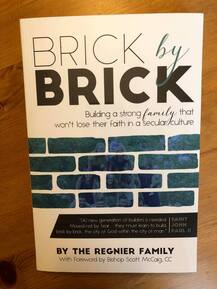 I was thrilled when Canada’s preeminent missionary family asked me to edit their new tell-all book Brick by Brick — Building a strong family that won’t lose their faith in a secular culture. I came back to my Catholic faith through Catholic Christian Outreach, the university student movement dedicated to evangelization that Andre and Angele Regnier founded 30 years ago. I am one of the hundreds, if not thousands of CCO alumni now raising families and Brick by Brick is the long answer to our collective question: how do we do, what you did? While bringing other people’s children back into the fold, Andre and Angele successfully raised five of their own faith-filled children. The three eldest along with their spouses now work as CCO missionaries, while the two youngest are still in school. In fact, Caleb and his wife Alana Regnier serve as missionaries right here in the Diocese of Calgary at Mount Royal University. Recently, I jumped onto a video-call with Andre, Angele, Caleb and Alana to discuss the book they co-wrote with the other immediate members of their family. It felt like a dinner table conversation, poking jokes and all, similar to the dynamic and collaborative approach they took writing the book together. The book highlights seven overarching principles while also giving lots of practical tips, so when asked to distill it down to a single word or thought, here is what they said: Andre: Methods are many, principles are few. The method of how you raise your children, the style, can vary, but what cannot be compromised is holiness and mission. It is not something that we do in the future, we are missionary disciples from baptism. That’s the disposition we took, that’s the environment we raised (our children) in. The fundamental principle is relationship. We raised our children to know God wants to be in a relationship with us. But we also have to believe that God wants others to be in relationship with Him. So it’s not just us, as a good Catholic, but everyone needs to be in this relationship. A heart for God and a heart for the lost. Angele: The word that comes to mind for me is intentional accompaniment. The premise of the book is much more than how to raise a Catholic family. We are taking a particular thesis, which is if you raise your child to have a personal relationship with Christ, and to learn from the earliest stages how to share your faith, these children will grow up to have a living and active faith because it’s been fostered at the appropriate dosage at the appropriate age. For us, holiness and mission go hand in hand, so intentional accompaniment for children is raising that child to be a disciple and missionary at age appropriate levels. Alana: The word that comes up is hope. Being around the family during the whole process of writing the book I was able to see that raising children to be missionary disciples is not a fluke. It’s not just because it’s Andre and Angele, and they are founders, but it’s actually repeatable. Caleb: My word would be proof. Proof that it is possible to be a family that is missionary and living holiness. It’s not just a pipe dream. ~ Caleb, you never rebelled against God or your family in any significant way. Why is that? Caleb: I never had to have that time of pulling away because I always felt freedom. When it came to God, it was an attractive idea. There were people that I saw in my life who were living this relationship with God and that seemed like the best way I could live my life. 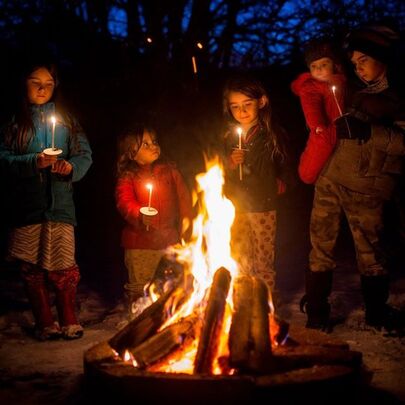 ~ What was the relationship between freedom and obedience in your household? Caleb: I did feel a lot of freedom to mess up, to find the answers, but they didn’t just say you figure it out on your own. When it came to Mass or youth group it wasn’t a question of –– if you don’t feel like it today you don’t have to go. It wasn’t like that. But there was an understanding that this is a relationship that can’t be forced. I needed to make that decision myself, but they also made sure I was being put in places where I could make that decision. Alana: That’s one thing I noticed about all the kids coming in, that they all had a really well formed conscience and a desire to be obedient and not just because mom and dad said so, but because it would help their relationship with Jesus. They learnt the skills to make good decisions. Angele: Having been a varsity athlete, Andre wanted the boys to be as competitive as he was and that’s actually where the rebellion happened, in the sporting arena of our family. He turned the boys off of wrestling for sure, and possibly competitive sport because he was so caught up in it. Praise God that sort of mentality didn’t transpire into how we approached faith with the kids. The invitation, the gentleness in which we brought the kids into an environment that was authentic helped the kids have freedom in their faith lives. A lot of parents that I see have struggled because of their angst that their children would be as spiritual as they translate into control. For a lot of these parents, it’s driven by fear, it’s not driven by hope. Andre: The principle is actually hope and expectation that children will submit and live their lives for Jesus. Because as parents, we are convinced that His name is powerful, and His message is compelling, and His life is abundant. We believe in the power of the Gospel. We expect that God is going to win out the day, so we are not living in fear of our children’s salvation. Although we are constantly doing a lot of course navigation. But we are not in a defensive mode. We are actually very offensive. We are bringing them along because we know they are going to want to come. Children will follow that great expectation their parents have for them. ~ What is your perspective on the Covid-19 virus? Andre: We can look at this worldwide situation as a global missionary opportunity. Everyone around the world has entered into a Lenten experience right now. They are forced to fast — I can’t do the things I want to do right now. They are forced to almsgive — I have to give of myself. But they are also forced to pray at some level. They are asking what is this all about? We are forced into self-reflection, and it is in self-reflection that God can begin to speak to the person in their heart. I feel this is a moment for us, the Church, to speak and let people know about who Jesus is. The love of God. The Church is here for you. If there was ever a time to invite people back, it’s now because they are already asking the question, “what is this about?”. How is it going to impact me? It’s not shallow reflection right now. It’s really internal, asking the big questions: what is the meaning of life. This is a missionary age. If ever we should be alive and active, it’s right now. ~ How can we make the best use of this time from the perspective of evangelization and mission? Angele: I think at a base level, it’s a good opportunity to check-in with each other. The checking-in can be that little opening to have heartfelt conversations. How are you? How do you feel about things? Evangelization has to be personal. It’s not just the communication of a message. It’s an opportunity to get at some deeper experiences or feelings of fear. There is a vulnerability in people that can be awakened by checking-in. People may secretly be seeking out spiritual things online that they have not sought out before. People will be searching to make some sense about it. The attitude of the missioner needs to be very compassionate, gently leading them back to the Good Shepherd. Alana: I am focusing on building trust and reaching out. Social media is our means right now to stir up curiosity in people. We can pray and ask God for someone to reach out to. I also think there are ways we can elicit curiosity in people through social media. We can show our lives and our reaction — the hope we have in Jesus during this time, even offering that if you need someone to talk to reach out to me. Caleb: This past week, I’ve had dozens of one-on-one conversations with university students. Their biggest deterrents are partying and relationships. However, all of that is being striped away. They are not able to spend time with their girlfriend or boyfriend or go out on the weekends. I’ve been surprised at the amount of openness among young people right now. We are inviting people to leave their old ways and become a disciple. I’m just amazed that so many people are saying ‘yes, I want that.’ Written by Sara Francis for Faithfully
Photos courtesy of Sara Francis & CCO Catholics across the Diocese of Calgary are looking for ways to de-stress from the distress. Adjusting to the new normal foisted on the global community by COVID-19, a disease that didn’t even have a name just weeks ago, thousands are live-streaming daily and Sunday masses. Others turn to traditional Catholic prayers like the rosary and Divine Mercy chaplet, seeking grace for the dead, the sick, their families and caregivers. Sr. Donna Marie Perry, FCJ, knows the news is bad. But the Calgary-based social worker and psychotherapist wants people to remember that the steps we take to stay “physically healthy should also include a focus on our mental and spiritual well-being.” That earns a quick nod from Dr. Peter Doherty, an associate professor of psychology and family studies at St. Mary’s University in Calgary. Dr. Doherty, whose work focuses on the integration of psychology and spirituality, agrees people should take mental health issues seriously in times of crisis. Mental health matters Sr. Perry is the clinical director of Insight Counselling and Therapy Centre. This not-for-profit offers long-term counselling at sliding rates as low as $5 a visit. Insight delivers care through practicum students supervised by Sr. Perry. All of the students are finishing master of counselling programs with various universities. The organization is one of the community-based organizations that benefits from Together in Action, an annual fundraising campaign by the Roman Catholic Diocese of Calgary. Given the imperatives of “social distancing” during the pandemic, Insight’s students currently offer support via phone. Sr. Perry herself lives in a seniors’ residence with strict pandemic protocols. With St. Mary’s University shuttered, Dr. Doherty is also staying close to home. They offered readers of Faithfully some ideas about how to make mental health a priority in trying times. Stay informed. Make healthy choices. “Fear is a healthy response to the situation, and it makes sense to stay informed. But let’s be smart about how much news we watch and read,” says Sr. Perry. She recommends people listen to morning updates and check in again in the afternoon or evening. A 24-hour news cycle includes a lot of recycled information and “when you’re hearing the same news all the time that increases stress,” says Sr. Perry. Hoarding items as basic as toilet paper shows “an emotional response to the crisis that doesn’t make rational sense,” adds Dr. Doherty. He also shakes his head when he sees examples of people not following recommendations for safe social interaction. One of the healthiest ideas he’s seen to date suggests people “not act as if you’re afraid of getting the virus. Instead, act as if you are trying to protect other people from getting it. The best information we have says most people who get this virus will survive. But we need to protect those who are vulnerable.” People who follow that advice should take mental comfort in knowing they are doing the right thing, says Dr. Doherty. Strengthen family ties. The social distancing protocols recommended by public health officials isolate family units. Sr. Perry’s urges families to use the time to your family’s advantage. Play games. Share meals. Go for walks where you can be 2 m from other people. If you have a backyard, use it. Reach out. “It’s like we are disconnected, together,” says Dr. Doherty. Since our own mental health benefits when we interact with others, this is a good time to phone, text, email, FaceTime or Skype with people we haven’t heard from in a while, “especially if we know people who might be alone.” This is also a good time to reach out to people whom we’ve hurt and vice versa. The words, “I forgive you,” are a way to free ourselves from the heavy, energy-sapping emotional burdens we carry when we haven’t let go of real or imagined hurts, says Dr. Doherty. This kind of pain bleeds into how we interact with others and how we handle strife. “It can keep us from handling unrelated situations well.” Pray. Pray together. Dr. Doherty encourages people of faith to use prayer as a conduit to deeper conversion. When we pray for the isolated, for those who’ve lost jobs and for people on the front lines of health care, prayer becomes a way to reach past ourselves to Christ, says Dr. Doherty. This can be helpful for people who grieve the fact that they cannot attend mass to receive the Eucharist. Family prayer is also helpful, says Sr. Perry. Praying for others teaches children that prayer is a way of helping others—and it reminds adults of the same thing. “It’s really important not to get caught up in ‘self’ and to keep looking outward,” says Sr. Perry. “Prayer can be very relaxing, too,” notes Sr. Perry. Following the Jesuit tradition of her charism, she uses her evening prayers “to look back on the day, to think about what went well and what didn’t go as well and to give thanks to God for the day.” She’s added more Hail Marys to her day by reciting that prayer while she lathers her soapy hands for the requisite 20 seconds (as recommended by public health), prior to rinsing off the soap with water. Sr. Perry says the Hail Mary is a good replacement for singing the ABCs or Happy Birthday songs. Listen. Talk. Be kind. People manage stress differently. If you see more anger than you’re used to, remember that unresolved fear may be expressed as anger, explains Sr. Perry. She encourages parents to listen when their kids talk about their fears. Be open to their questions and offer age-appropriate responses. “Let them know that you don’t know everything, but you will figure it out together.” Also, remember that children internalize messages from the external world and believe that everything that happens relates to them. It’s a matter of maturity, not selfishness, says Sr. Perry. “Children internalize information to make sense of their environment with limited experience. They use that information to make decisions about themselves and the world. They build what we call a script, and we live out of those childhood beliefs.” Laugh often. Love much. With so much doom and gloom, Sr. Perry suggests people who are feeling sad work some comedy into their screen time. She and Dr. Doherty admit they are especially worried about individuals and families who did not go into the current pandemic in strong mental health. “Not all families are healthy,” says Sr. Perry. She urges people who see others struggling to reach out with kindness. Where appropriate, you can also recommend they access support from community-based organizations. ===== Calgary Distress Centre Helpline: 403-266-HELP (4357) Written by Joy Gregory for Faithfully
Photo: Lightstock Domestic church. These words might mean a lot more now than they did a mere two months ago. As all of us have experienced, Covid-19, social distancing measures and the cancellation of Masses to stop the spread has affected the greater Catholic community in large and small ways. “Mom, we are the people who walked in darkness,” my four-year-old said to me one day last week, citing the psalm we’ve been singing after sharing the Liturgy of the Word the last few Sundays before Easter, but even though there is much to be prayed for, I am seeing a lot of light shining through. Many of us familiar with social media already know the hope that can be gleaned from the apps and resources that popular Catholics produce for wider consumption, but this unprecedented situation has had many of us reaching for our phones and computers, not only for connection with others but for prayer. Alane Boudreau, with children and grandchildren ranging from 6 months old to 25 shared with me that their family took up an Instagram offer that Fr. Alex Mijangos, LC at Sacred Heart Church in Calgary made to join families for a live online rosary, and that night realized how well it might work for their family and friends to join in too. “We have been saying a nightly family rosary after supper for a few years now. We always invite anyone who is with us for supper to also join us for the rosary, but we had never thought to do it live online until the social-distancing measures were introduced. “We send out a Zoom invitation each day, and when we have all gathered, we share our intentions and then take turns saying a decade. There are usually around 6 logins, bringing us to around 20 people. Simple and effective, this is one way for families to both connect and to receive the grace of prayer together. “As the weeks have passed,” Boudreau said, they have focused efforts on her husband Rene’s parents who live in Nova Scotia and are “finding these weeks especially lonely and isolating.” The nightly rosary also comes with a special treat: “Our kids all go to the wonderful St John Choir Schola in Calgary, a choir school for homeschoolers, so they have been taught to sing. Their grandparents are true Cape Bretoners who love music, so at first, we would simply sing a song for them before and after the rosary. “As these things tend to grow, it has expanded into all ages singing songs, now with choreography and costumes, using whatever we have in the house. “It has definitely brought cheer and laughter to the grandparents, and our married adult children who are living in other cities.” I am inspired by stories like this and of others’ too, who have taken the initiative within their homes to keep the life of the Church alive and well through this time apart from our church communities. “For us, it’s been important to keep Sundays set apart,” said Caitlin Marr, a Calgary mom of two girls. The family still dresses up for Sunday Mass, and Marr and her husband Todd rearrange their dining room, putting candles and icons around their TV screen to livestream Mass, “so the girls know that it is more than just family movie time.” Social media is awash with ideas and postings of things families are doing. From a seven-church pilgrimage on Holy Thursday with a few socially distanced friends to a visit here and there from friends dropping Easter gifts and spiritual aids, we as a church are finding ways to thrive in both beautiful and innovative ways. I’ve had feelings of emptiness accompanied by feelings of abundant grace. We were already choosing to homeschool this year with Saint John Choir Schola to support us, and fortunately, that transition has been seamless, but I know the stress of being a new homeschooler, and that is what many are going through now. Being trained in the Catechesis of the Good Shepherd, a Montessori-based program for children, I felt somewhat equipped to guide the children through Holy Week alongside my husband, though we have mourned the loss of being surrounded by our friends and family as we celebrate the liturgy. On Holy Thursday, a fellow catechist was kind enough to drop some material for a presentation of the Last Supper. I felt so blessed as my seven-member family sat around our coffee table, looking at a miniature version of the disciples around a table with a peg doll Jesus, a cup, bread and wine. On Saturday night we lit a fire for our very own Vigil and passed light to one another from a homemade paschal candle. As we explained the liturgy to our children, my husband and I had a deeper understanding of the great mystery we were missing, and a sense of urgency to pray for the day when we can unite within the walls of our churches again. “I like it when Father does this better,” said one of my sons, which will hopefully gratify our parish priest, whom we value very much. “So do I,” I thought. And in the midst of this, our priests and religious are still hard at work to provide spiritual food for us. With online homilies and messages of hope, as well as reaching out online, our Church is making do and getting by as we have for thousands of years across the world in times of crisis. Written by Jessica Cyr for Faithfully
Photo courtesy of Jessica Cyr 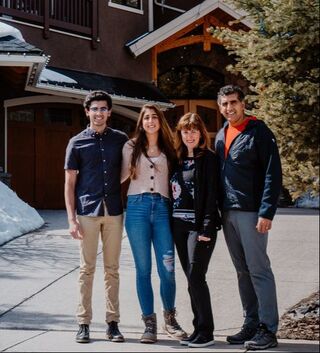 Adrianna and family Adrianna and family High school graduation celebrations are a big deal, so it’s little wonder that some Grade 12 students are mourning the way COVID-19 and a host of pandemic protocols dramatically pre-empted carefully-made plans to celebrate this rite of passage. Adrianna Domingo, a 2020 graduate-in-waiting of Our Lady of the Snows Catholic Academy in Canmore, admits to grieving the loss of her own celebration. Then she sat down to a family dinner that ended with her family launching a community support program to help some of Canmore’s worst-hit residents, employees of the town’s tourism and hospitality trade. Hope for Hospitality is a grocery card initiative that’s collecting $100 food gift cards for workers in Canmore’s tourism industry. The program connects Our Lady of the Snows school students, Our Lady of the Rockies parish, Tourism Canmore Kananaskis, and everyone else who wants to get on board, with a plan to make sure tourism employees aren’t going hungry after a sudden job loss. The idea came from Adrianna’s parents, Vijay and Suzanne Domingo. Vijay shared with his family that Canmore’s tourism and hospitality businesses expect to lay off 80 percent of their staff. With some individuals likely to wait weeks before government assistance programs kicked in, the family realized some workers would not be able to stay in Canmore until the town opens for business. Others would stay, but not have income. Hope for Hospitality allows businesses and individuals to donate money through Our Lady of the Rockies parish. Every dollar collected is put towards buying $100 food gift cards to be used at local grocery stores. Local businesses can apply for the cards on behalf of their out-of-work employees and Tourism Canmore Kananaskis is managing the requests. With Adrianna’s help, personal messages of hope are being added by school students. Adrianna, president of her school council, asked her Grade 12 peers and other students to design cards to accompany each of the gift cards. With graduation celebrations now temporarily on the back burner, Adrianna is attending to school work, then assisting her brother and parents with packaging the cards for distribution. While no one anticipated this would be part of their daily family routine, with the pandemic ever evolving, it is the one thing that feels right. Confident that God will see them through, Adrianna admits that helping others lightens her own load in these difficult times. To support Hope for Hospitality, visit: http://www.rockiesparish.com/donate.html Submitted by Lindsay Fagan, Director of Catholic Education, Christ of the Redeemer Catholic Schools
Photos submitted by Christ of the Redeemer Catholic Schools. What is a monastery? A monastery is not so much a place set apart for monks and nuns as it is a place set apart (period). It is also a place to learn the value of powerlessness." Ron Rolheiser The Domestic Monastery The Covid-19 virus situation might have us feeling “set apart” in the monasteries of our hearts, homes, and virtual communities and in those places, having to learn the “blessings of powerlessness” (Rolheiser, 2001). As Christians, our deepest form of powerlessness is our powerlessness to exist by our own efforts. We do not have the power to bring ourselves into existence, nor to sustain ourselves in existence. This powerlessness to exist on our own terms awakens us to all that we are as God’s gift. As awakened people, we’re to be faithful to that awakening through a life of gratitude and love (Finley & Simon, 2011) . Every monk and nun knows “the nature of community, the healing ointment of prayer”, and the value of silence (Chittister, 2010, p. xiii). Monastic spirituality offers a way of life and attitude of mind, more than rules of right behaviour (Finley, 2004). For Benedict of Norcia, the spiritual life meant living this life and living it well (Chittister, 2011). We do not need to go very far or to be monks or nuns to find opportunities in this life to live well in community, in prayer and in silence (Finley, 2004). To hear God speak, Benedict instructed his monks to be still and silent and yet alert and attentive to God seeking them (Chittister, 2011; Smith, 2004). Christian meditation is silent prayer that fosters conscious awareness of God giving himself to us in all that we are and enables us to respond to the gift of ourselves in and through gratitude and love (Finley, 2004). Silent prayer awakens us to the spirit awakening us to the divine love that is all we are all the time (Finley, 2011). We sit still, we sit silent, we breathe slow, natural breaths, we say our mantra, and when we become distracted, we simply return to the practice without judgement or evaluation. Stillness of Body, Thinking, Feeling, Willing and Remembering Living the meditative way, we somehow realize God bodying himself forth in every breath, heartbeat; indeed in all that our body is (Finley, 2004). We likewise learn to see ourselves as the observer and God as the creator and sustainer of our thinking self and all that we think. We resist slipping into thinking our thoughts, having our opinions and reacting to them. The meditative mind neither thinks nor is defined by any thought. It becomes stronger, calmer, and more stable (p. 116). We simply observe our thoughts as they arise, endure, and pass away, without clinging to or rejecting any of them. Likewise, we learn to be quietly attentive to each feeling that arises, endures, and passes away. Neither clinging to nor rejecting any feeling, we can pass beyond feelings and into meditative one-ness with God. In so doing, we grow in self-knowledge, self-awareness and compassion for ourselves and others in our broken-ness and wholeness (Freeman, 2009). Through our silent prayer practice, we recognize that no matter how we try, we cannot control God through the actions of our will. We let God be God. We also learn to be present in the present moment. We become aware of our tendency to allow our past memories to determine our whole self. We are more than just our remembrances. Who God knows us to be is infinitely more than anything we remember ourselves to be. We learn to reverence the miracle and mystery of memory. All we need is right here right now The optimal conditions for us to live a more meditative way of life are right here right now in the face of COVID-19. Monks and nuns know that living in a monastery is a lifetime of learning how to wait for God in the midst of both delays and difficulties and sometimes unexpected and unimaginable graces and blessings (Finley, 2004). In the silence of our places set apart we do not only learn about, we experience powerlessness as a gift, grace and blessing. ==================
Written by Patricia Harasym.
Patricia has been meditating, for more than 20 years. She was taught meditation by Engeline Piet at the FCJ Centre in the tradition of Fr. John Main, OSB and Fr. Laurence Freeman, OSB. Patricia practices and uses her Master and PhD training in communication from the University of Calgary, her training as a lay Benedictine Oblate and her knowledge of Ignatian Spirituality as a Spiritual Director, 19th Annotation facilitator, and member of the FCJ Resource Team. 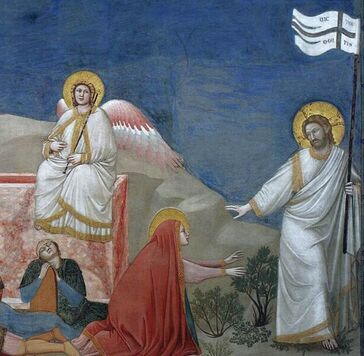 My dear brothers and sisters, Peace and Easter blessings be upon you. The Lord appeared to His disciples after His resurrection and greeted them, saying, “Peace be to you.” Many times in sacred scripture our blessed Lord offers his peace. So it is in our lives, the Lord Jesus stands in our midst and says, “Peace I leave with you; my peace I give to you. I do not give to you as the world gives. Do not let your hearts be troubled, and do not let them be afraid.” (John 14:27, NRSV) The challenges experienced with the COVID-19 pandemic will be far reaching: the heavy toll of the illness itself on those who experience its effects, the loss of human lives, the suffering borne by families and communities, the heroic responses of those who provide essential services, and the dutiful acceptance of the routines put into daily practice to promote communal health and safety for the sake of others. As we prepare to celebrate Easter, one might ask if this is the appropriate time in the midst of this global fear to proclaim the Good News that Jesus Christ is risen. Those who first witnessed the resurrection offer a response which is timely. The women in Matthew’s Gospel who go to the tomb are burdened with disappointment and grief having witnessed his sacrificial death. They are overcome with fear and in that precise moment, they encounter Jesus who says to them, “Do not be afraid; go and tell my brothers to go to Galilee; there they will see me." (Mat 28:10, NRSV) Jesus ’response to the woman resounds for us today. As we face this pandemic, we are assured not to be afraid and we are called to proclaim Jesus as the Risen Lord in whom our faith is placed. At the beginning of the celebration of the Easter Vigil Mass, the light of the Paschal Candle is processed into a darkened Church which then quickly becomes bathed in light as the candles people hold are lit from that one flame. This year, we were not able to experience this with the measures of self-isolation. However, we must not forget this Easter symbol of the risen Christ. Even without this personal experience, the Paschal Candle continues to represent the light of Christ which dispels the darkness and the resurrection of Christ which overcomes sin and death. Our belief in the resurrection is the light of faith which can bring joy and hope in the midst of despair. This Easter will be for all of us an unsettling and challenging time to celebrate and witness to the joy and hope that is so central to this feast. However, I encourage you to recognize in these times the blessings, graces, and consolations of God which may have been hidden from view in the usual routines of life. With eyes of faith, we see our life experiences as occasions that can draw us closer to God. Sometimes it is clear to us how this happens, and at other moments we wonder how God could possibly use the particular circumstance of our life for His purpose. However, we know from the Saints that God uses these moments to reveal Himself to us.
The secret of happiness is to live moment by moment and to thank God for all that He, in His goodness, sends to us day after day.” St. Gianna Molla I encourage you to pray for the grace to see the Risen Christ in the current reality of your lives and to recognize His deep love for each one of us. We will see His presence more profoundly in our homes and our families, in our work and in our outreach to those in need.
This Easter, I invite us to rediscover the symbol and power of our faith as a light which can dispel the darkness that we presently experience. This is what we are called as Christians to proclaim and live. As an Easter people, let us proclaim the Resurrected Christ knowing that He has brought forth life from death, light from darkness, and hope from despair. As Saint John Paul II says, “Do not abandon yourselves to despair. We are the Easter people and hallelujah is our song.” This Easter, in these unusual times, let us find within our faith the sustenance and resolve to proclaim, “He is risen.” And we rejoice saying, “Alleluia. Alleluia. Alleluia.” May God bless you with abundant faith, serenity and joy this Easter. |
Author
Catholic Pastoral Centre Staff and Guest Writers Archives
July 2024
Categories
All
|
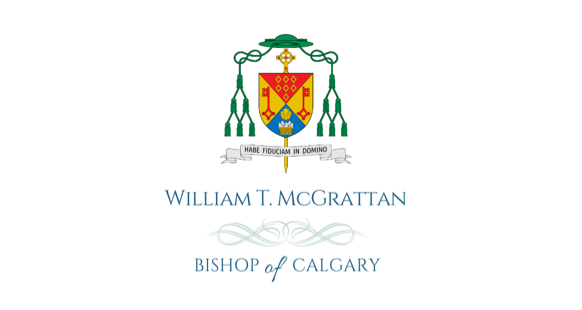
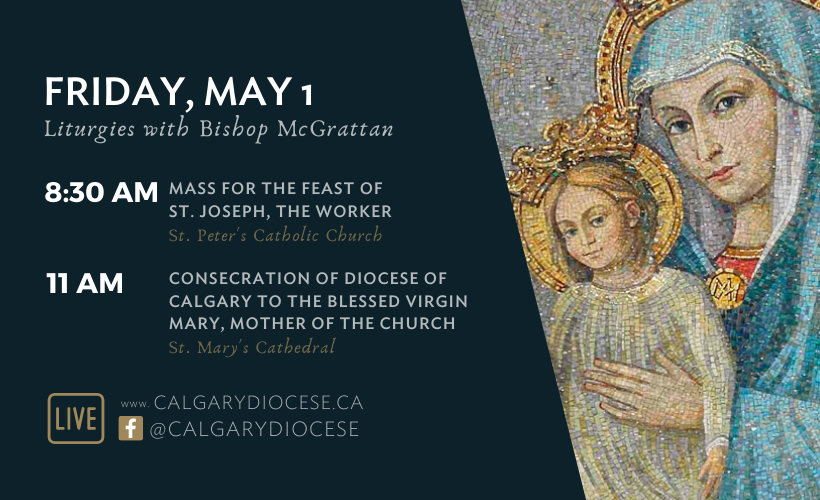
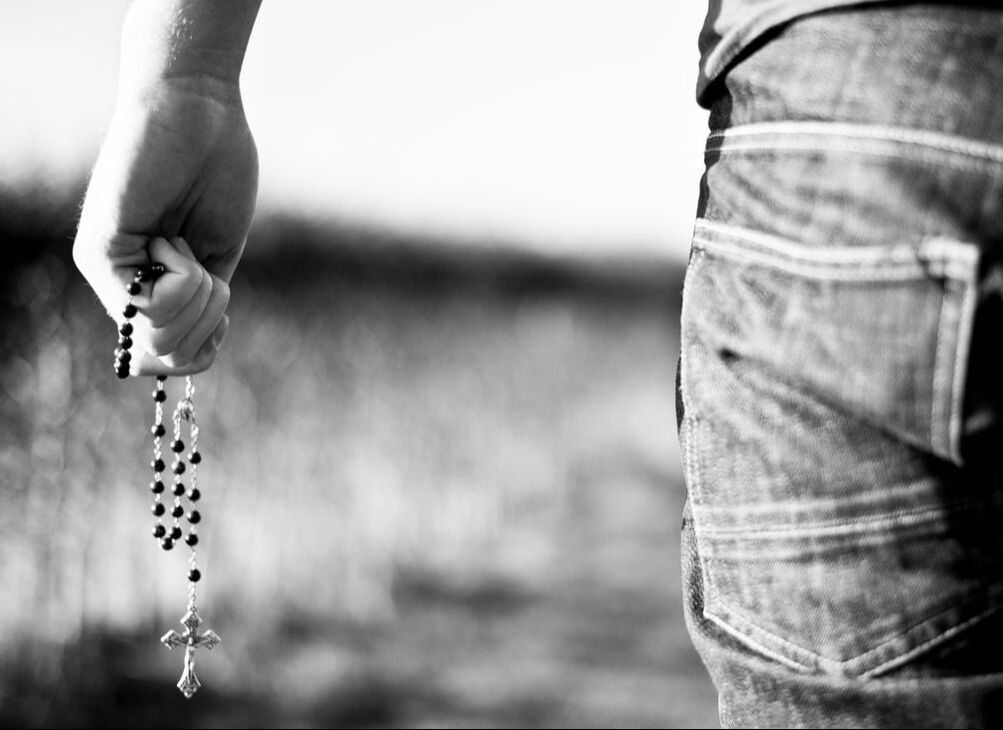

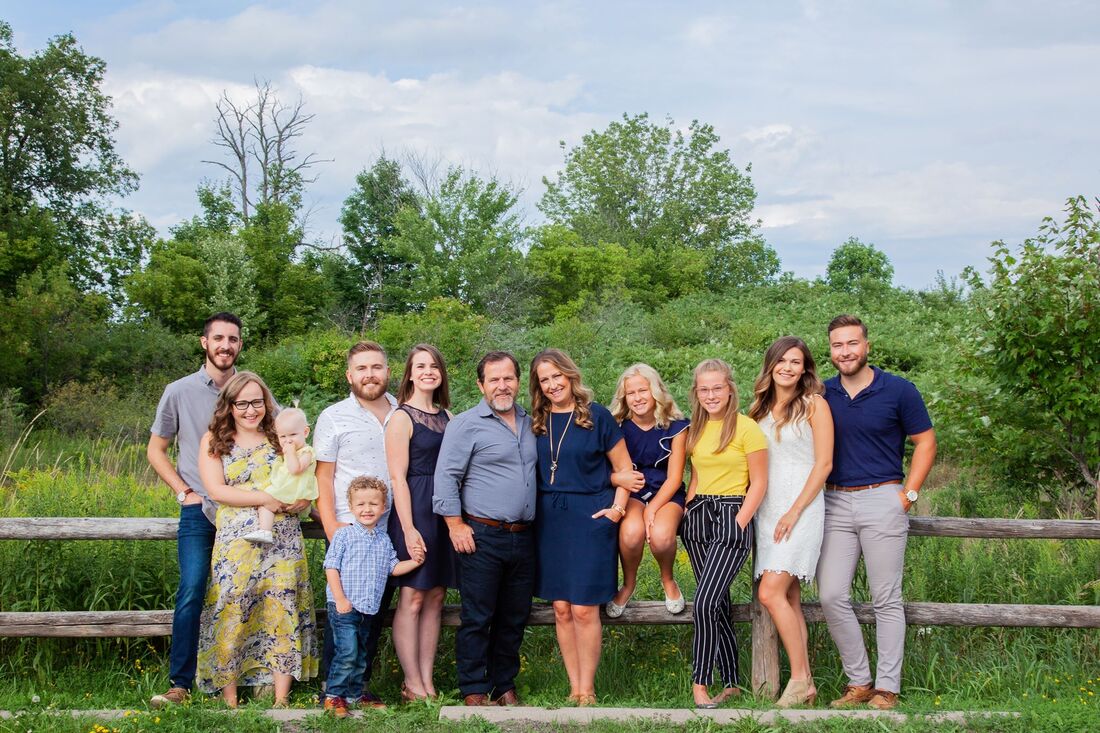

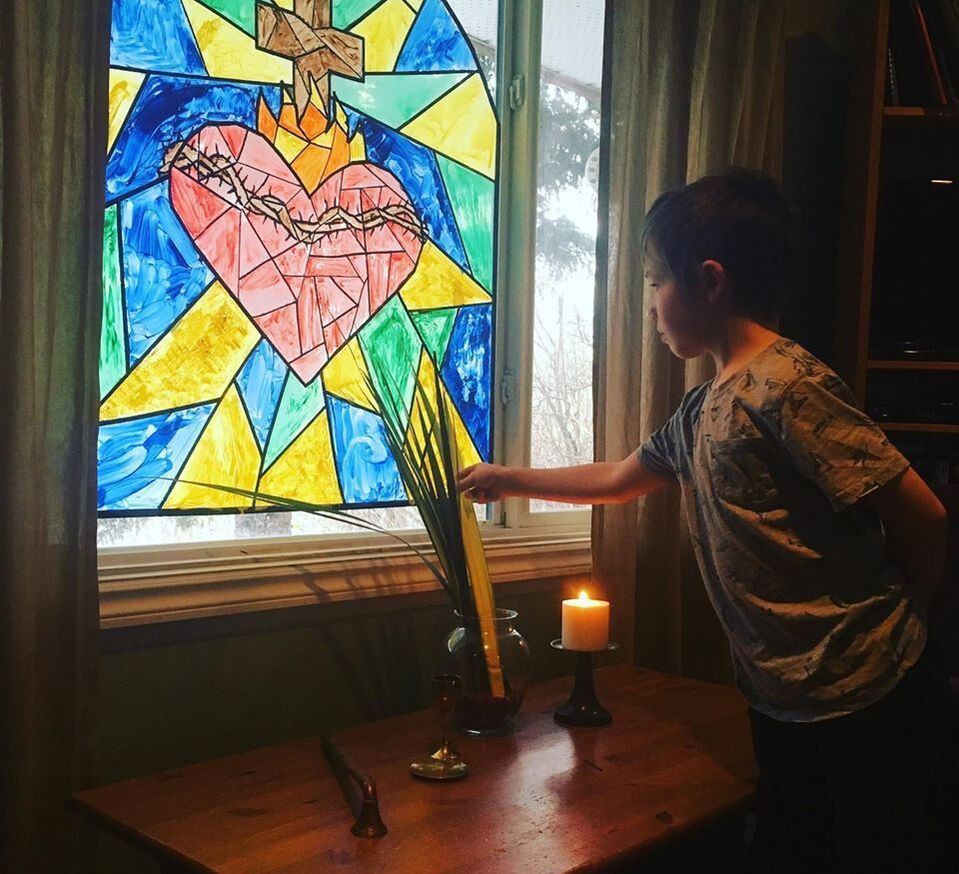
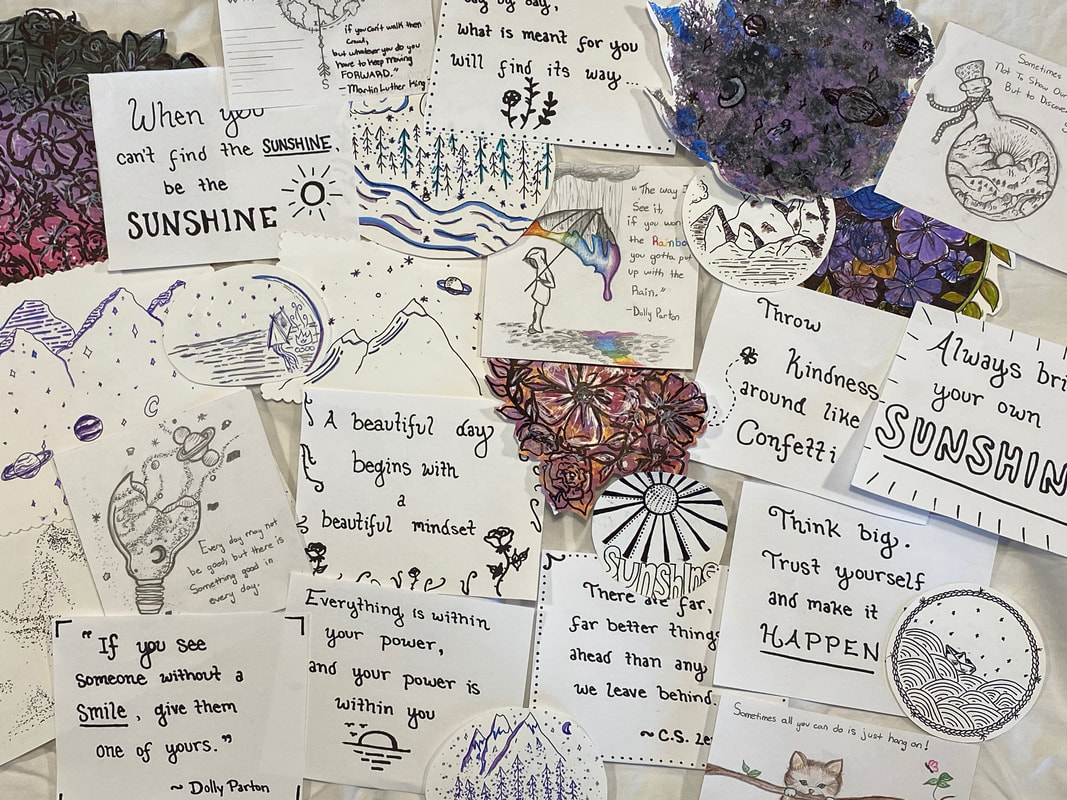


 RSS Feed
RSS Feed